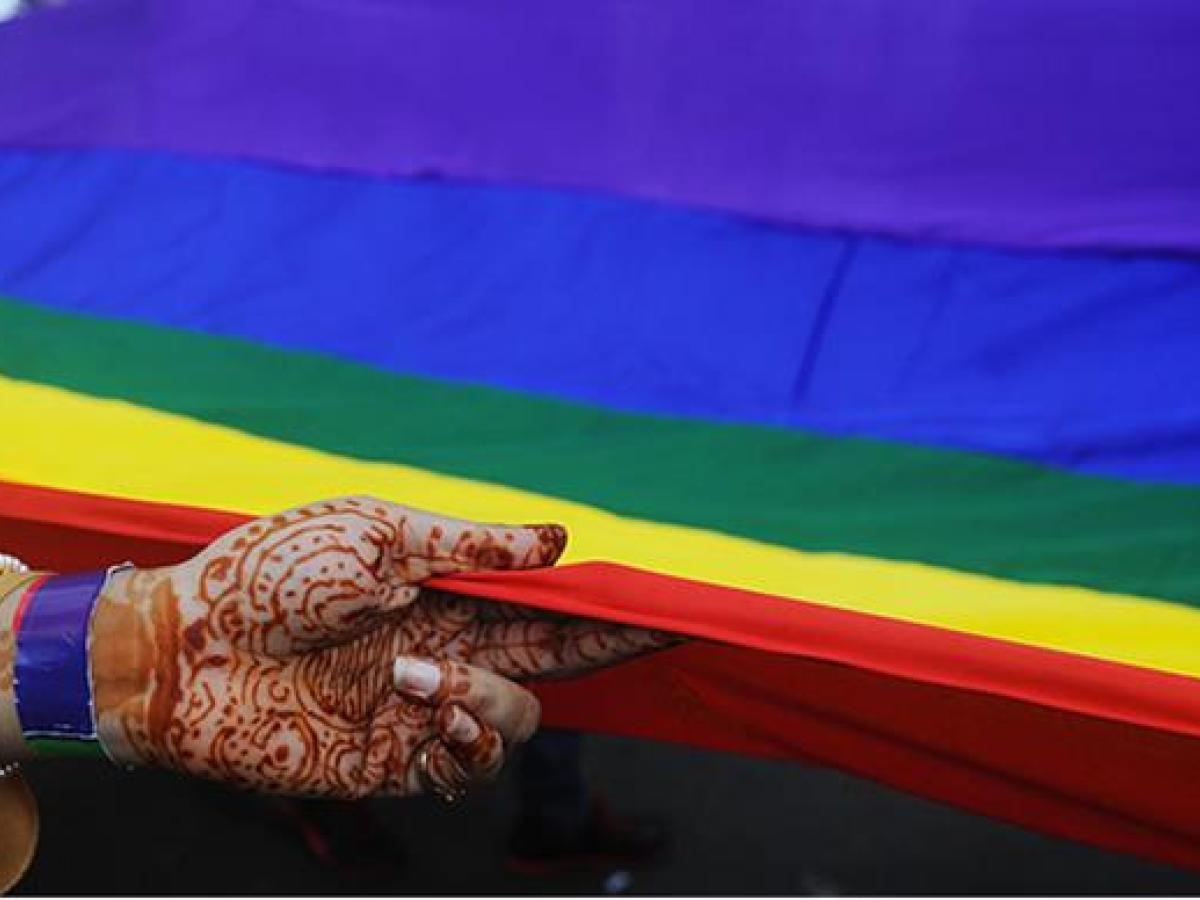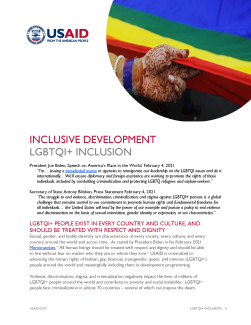President Joe Biden, Speech on America’s Place in the World, February 4, 2021 “I’m… issuing a presidential memo to agencies to reinvigorate our leadership on the LGBTQI issues and do it internationally…We’ll ensure diplomacy and foreign assistance are working to promote the rights of those individuals, included by combatting criminalization and protecting LGBTQ refugees and asylum-seekers.”
Secretary of State Antony Blinken, Press Statement February 4, 2021 “The struggle to end violence, discrimination, criminalization, and stigma against LGBTQI+ persons is a global challenge that remains central to our commitment to promote human rights and fundamental freedoms for all individuals… the United States will lead by the power of our example and pursue a policy to end violence and discrimination on the basis of sexual orientation, gender identity or expression, or sex characteristics.”
LGBTQI+ PEOPLE EXIST IN EVERY COUNTRY AND CULTURE, AND SHOULD BE TREATED WITH RESPECT AND DIGNITY
Sexual, gender, and bodily diversity are characteristics of every society, every culture, and every country around the world and across time. As stated by President Biden in his February 2021 Memorandum, “All human beings should be treated with respect and dignity and should be able to live without fear no matter who they are or whom they love.” USAID is committed to advancing the human rights of lesbian, gay, bisexual, transgender, queer, and intersex (LGBTQI+) people around the world and meaningfully including them in development programming.
Violence, discrimination, stigma, and criminalization negatively impact the lives of millions of LGBTQI+ people around the world and contribute to poverty and social instability. LGBTQI+ people face criminalization in almost 70 countries – several of which can impose the death penalty. In many parts of the world, intersex people suffer from irreversible, harmful, and medically unnecessary medical interventions, often without full informed consent. LGBTQI+ people are often excluded from social benefits systems, lack legal recognition of gender identity and relationships, and may experience rejection from families and other social networks. These factors limit their rights and access to essential services such as education, employment, and health care, and pervasive discrimination and exclusion prevent meaningful inclusion in broader development efforts.
LGBTQI+ ACTIVISTS LEAD THE WAY
Despite these extremely difficult realities, there are brave, smart, strategic, passionate, and resilient LGBTQI+ leaders and civil society organizations in nearly every country and region who work tirelessly to advance the rights of all people across the diverse spectrum of sexual orientations, gender identities and expressions, and sex characteristics. It is due to their efforts that meaningful change is possible.
USAID is committed to the principles of “do no harm” and “do nothing about them without them.” Abiding by the “do no harm” principle means that we take measures to ensure that our efforts do not put LGBTQI+ individuals or groups at increased risk of harm or raise their public profile in a way that could lead to backlash. Abiding by the “do nothing about them without them” principle means thoughtfully liaising with local and regional LGBTQI+ groups to ensure that any intervention support is aligned with local priorities.
LGBTQI+ INCLUSION EFFORTS
Inclusion is one of USAID’s core values. The LGBT Vision for Action reflects USAID’s commitment to protect LGBTQI+ people from violence and discrimination and advance their human rights. USAID’s programs and Mission operations also strive to advance and abide by inclusive development principles.
USAID’s LGBTQI+ programming includes a) the Human Rights Grants Program, which provides funds to Missions to respond to human rights challenges and opportunities faced by LBGTQI+ people; and b) the Multi-Donor LGBTI Global Human Rights Initiative (GHRI), which leverages the financial and technical contributions of bilateral donors, foundations, nongovernmental organizations, and universities to help protect LGBTQI+ people from violence, discrimination, stigma, and criminalization in nine developing countries. USAID also supports two global research efforts: the LGBT Global Acceptance Index, which analyzes survey data on stigma against LGBT people across time and geography; and the Global Barometer of Gay Rights and Global Barometer of Transgender Rights, which measure the extent to which countries protect or persecute LGBT people across time and geography.
FOR MORE INFORMATION:
Website: https://www.usaid.gov/LGBTQI
Inclusive Development Hub; Bureau for Inclusive Growth, Partnerships, and Innovation


